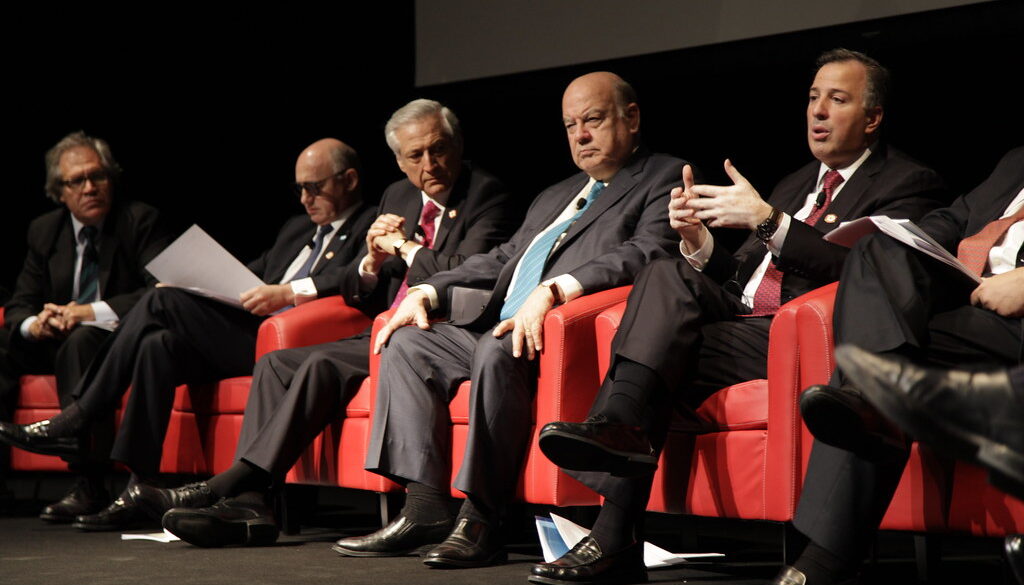Costa Rica joining the Pacific Alliance is a strategic step
Table of Contents
Contact the Central American Group to establish a nearshore manufacturing operation in the Green Park Free Zone in Costa Rica
Costa Rica joining the Pacific Alliance will strengthen the Central American nation’s ties with Chile, Colombia, Mexico, and Peru.
This past July, Costa Rica announced its intention to move towards joining the Pacific Alliance. Within this framework, the Costa Rican Chamber of Industries articulated efforts with private-sector unions to begin building relationships with their counterparts in the region. Costa Rica joining the Pacific Alliance will be a factor that will strengthen the nation’s economy.
This allowed the national private sector to participate as a guest in the IX Business Summit, which took place in Mexico between November 23 and 25, 2022.
Enrique Egloff, executive president of the Costa Rican Chamber of Industries (CICR), pointed out that “we have insisted on the importance of learning from the past and building the future. This implies reaping benefits within the framework of a reconfiguration of value chains, identifying new markets, and advancing participation in the links with the highest added value of global chains. It also entails working on digitization, circular economy, sustainable economic development, and trade facilitation. Progress in these fields is feasible, but to achieve them, we must join the group of countries of the Pacific Alliance.
The Pacific Alliance has faced several recent challenges
Within the framework of the Summit, Valentín Diez Morodo, president of COMCE and the Mexico Chapter of the Business Council of the Pacific Alliance (CEAP), highlighted that during the pro tempore presidency of Mexico, members of the Pacific Alliance went through several challenges. They included the coronavirus pandemic, the invasion of Ukraine, the disruption in value chains and the difficulty of accessing raw materials, high inflation, and high interest rates that affected all countries’ economic, social and political life. However, the Pacific Alliance has remained steadfast in working together, and its member countries contributed 2.2% of world trade in 2021.
Among the main topics addressed at the Business Summit, sustainability stood out. This includes the circular economy, carbon footprint reduction, and intra-alliance progress in providing companies with strategic tools to achieve their goals in these areas.
Likewise, attendees at the event discussed the importance of joint work to reap the benefits of nearshoring, digital processes, and new trends in providing services and labor relations. Furthermore, they examined the strengthening of models that favor innovation and commercial ventures, the mainstreaming of gender issues in developing public policies and business strategies, cybersecurity, and financial inclusion.
Costa Rica joining the Pacific Alliance will strengthen the group
“In this context, Costa Rica joining the Pacific Alliance is an action that the country cannot postpone; We owe it to the country, which for more than ten years has been present since the beginning of this initiative, of which it has wanted to be a part ever since. We owe it, above all, to the Costa Rica of tomorrow, which has the elements for success. Costa Rica joining the Pacific Alliance will allow us to build joint, innovative, and sustainable solutions for systemic, historical, temporary, and emerging challenges, “ highlighted Egloff.
Sergio Díaz-Granados, executive president of the Development Bank of Latin America and the Caribbean (CAF), highlighted the importance of the Pacific Alliance as a regional strategy that has been recognized as a model by the World Trade Organization. “Joining forces; uniting synergies; This is how we are committed to becoming a prosperous region, and we will achieve an inclusive economic development,” he pointed out in his opening remarks, concluding that “CAF and the Alliance must advance not parallel, but intertwined.”
Among the Alliance’s work priorities, Richard Von Appen, president of the Sociedad de Fomento Fabril (SOFOFA) and the CEAP Chile Chapter, reiterated the importance of strengthening regional production chains, diversifying exports, working on a roadmap towards sustainable management of plastics and generating quality employment.
During this meeting, the various working groups of the Business Council presented the results and strategies to continue advancing together and building well-being, competitiveness, and inclusive development.
The members will work to create value chains
«We will continue working on facilitation, reduction of procedures, eliminating barriers to commercial exchanges, and avoiding continuous modifications in the regulations that govern business activities, and that result in obstacles to the creation of value chains. Furthermore, we will work to guarantee a regulatory framework that favors national and foreign investment, the development of digital skills, and the exchange of professionals in priority sectors for countries and companies. Additionally, we will promote public policies that allow for greater sustainable development,” concluded Diez Morodo in one of the event’s panels.
Among the main challenges the Alliance must address in the region, Richard Von Appen highlighted the polarization generated within the countries, recalling the importance of building a path on common ground; for which public-private sector work is essential.
“The Pacific Alliance extends beyond commercial issues. It addresses tourism, human resources, intra-regional exchange, labor force development, and value creation, ” concluded Egloff.
Contact Us
Please use this form to contact us and we will respond as soon as possible:





